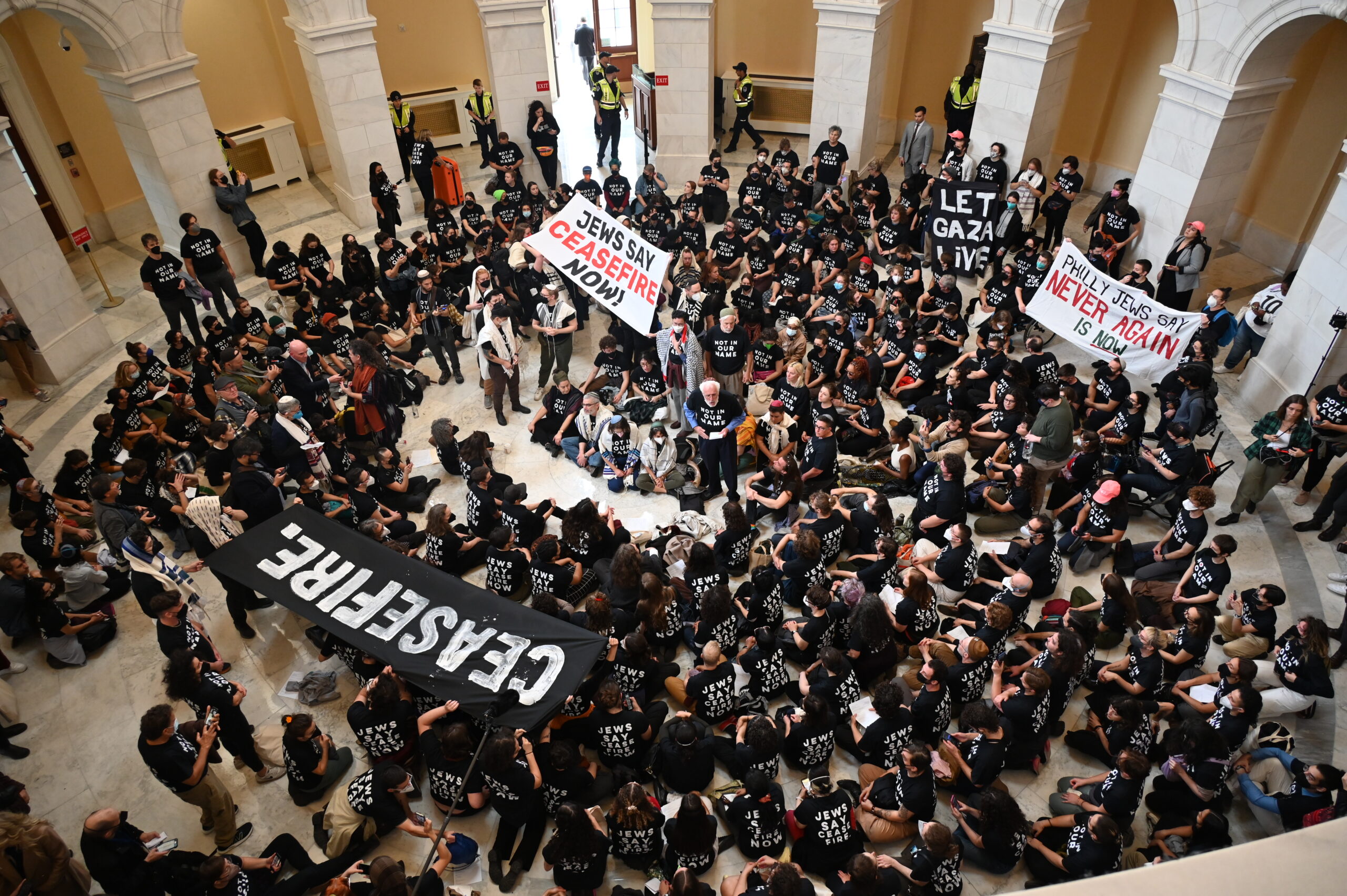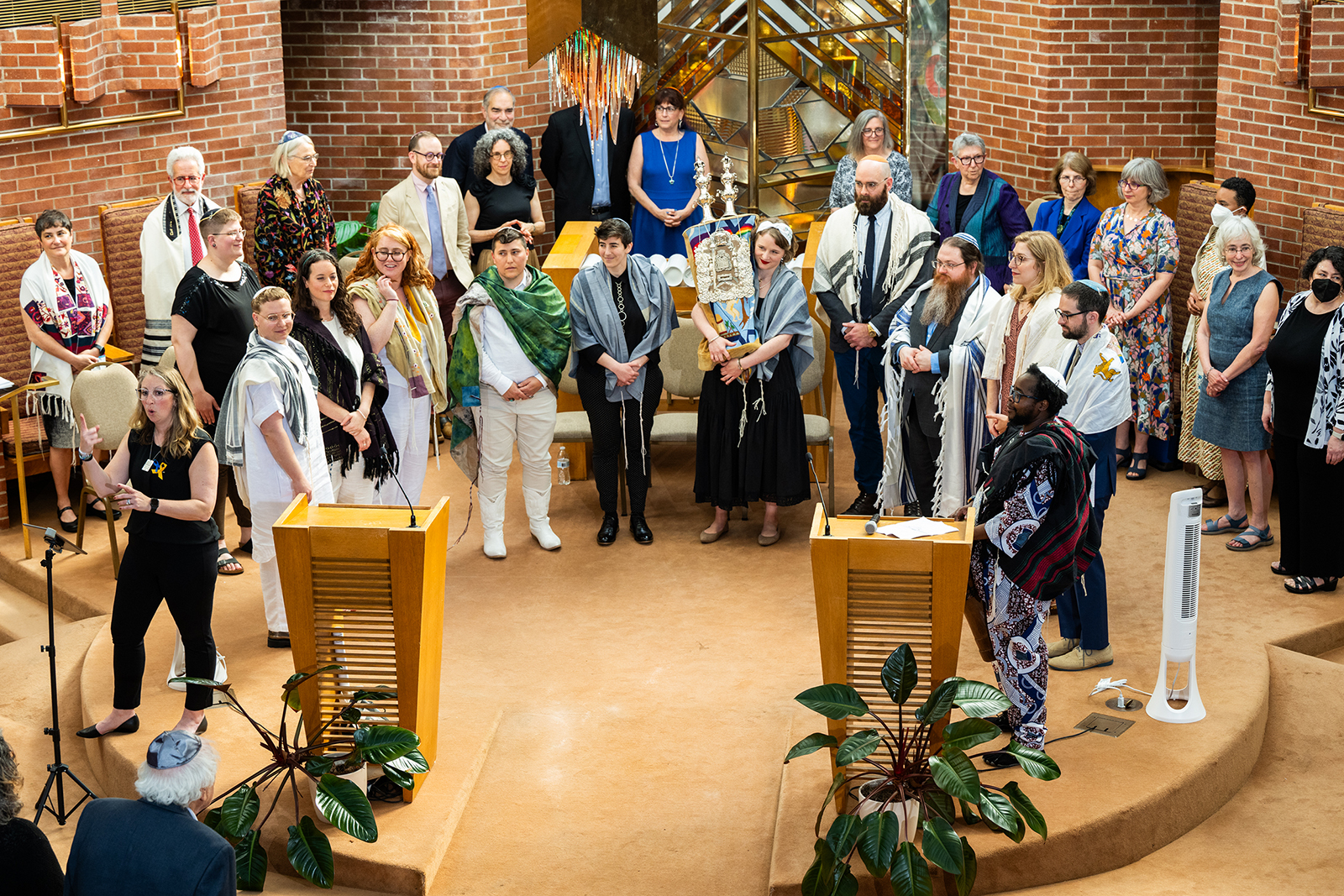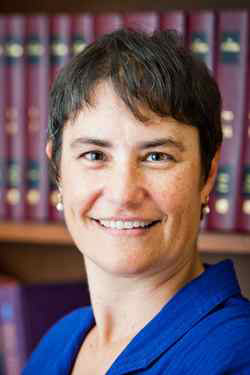A new book argues most white US Christians worship a religion of whiteness
Michael Emerson and Glenn Bracey depict a Christianity that worships a white Jesus and a set of sacred symbols, including the flag, the cross and, increasingly, guns.

(RNS) — In 2000, two sociologists wrote a book about the fraught efforts of white evangelicals to diversify their congregations to better address racial discrimination in the church.
Now, one of those authors, Michael Emerson, has teamed up with another sociologist, Glenn Bracey, for an update.
Their conclusions are grim.
In “The Religion of Whiteness: How Racism Distorts Christian Faith,” Emerson and Bracey suggest that as many as two-thirds of white Christians in the U.S. have elevated whiteness to a religion itself, one that rivals Christianity.
It’s a controversial claim, but one they support through interviews with Christian church leaders, many of them Black, about the state of race in the church, as well as a set of national surveys they conducted over the past few years.
Emerson and Bracey depict a Christianity that effectively worships the white race with a white Jesus at its center and a set of sacred symbols, including the flag (both the U.S. flag and sometimes the Confederate flag), the cross and, increasingly, guns. Though their churches may be slightly more racially diverse, this religion of whiteness strives to maintain whites at the top of the racial hierarchy as part of God’s ordained order.
Religion News Service spoke to Emerson, a fellow in religion and public policy at Rice University, and Bracey, an assistant professor of sociology at Villanova University, about their bold conclusions. The interview has been edited for length and clarity.
You’re not using the word “religion” metaphorically in this book. You’re actually saying there is a religion of whiteness. Explain how you mean it.
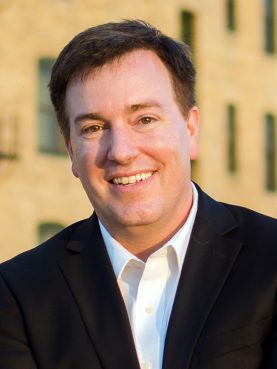
Michael Emerson. (Courtesy photo)
Emerson: This is hard for people to understand, but we’re saying we cannot make progress in our country on race until we understand the depth of what it all means. It is wrapped literally in a religion that has all the markers of the way we define religion. It’s a unified system of beliefs and practices that worships or sacralizes, not some God in this sense, but whiteness. Whiteness is the god. It declares that everything else that isn’t supporting whiteness is profane, it’s wrong, it needs to be shunned.
Bracey: And when we say whiteness, we’re talking about the dominance that white people enjoy over people of color. So it’s not as though someone is saying, ‘I attend the Church of Whiteness.’ It’s that they find themselves caught up in the worship of the dominance that white people enjoy.
As you say, this religion doesn’t call itself a Church of Whiteness. Why not?
Emerson: There’s a couple of rhetorical moves that are made so you never have to actually name it. One of them is that Jesus is white, and Jesus by definition is supposed to be for everybody. So Jesus is universal. So as long as Jesus is white and Jesus is universal, then whiteness is universal. And once you do that, you no longer have to name it, because that is truth. Anything else, is an argument against truth.
You also point out that churches across the country are becoming more diverse.You mention that 20% of Christian churches are racially diverse, up from 6% in 2000. Doesn’t that argue against a religion of whiteness?
Bracey: So that’s a very good question. It’s important to note that 80% of the churches are still homogeneous. The difficulty is, the whiteness of the church can remain, even when the church is not entirely white.
White evangelical churches in particular have race tests to either exclude people of color or make sure that people of color will support whiteness in the way that the church wants it supported. So those tests, I call utility-based tests, to tolerate and support these performances of white dominance. Those race tests are working. They’re doing a good job of filtering out people who would disturb the worship of whiteness in those churches.
Describe how these tests work.
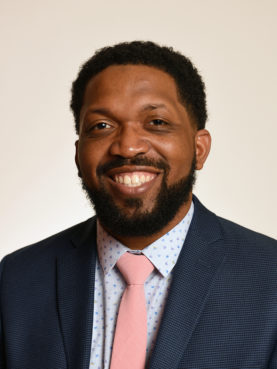
Glenn Bracey. (Photo by Kevin C. Brown)
Bracey: I went to seven churches across four different states, all majority white and evangelical. In one church, I was asked on my first visit to go up on stage and sing, even though I have no history of singing in churches. In another church, I was asked if I wanted to adopt a biracial baby because this child had a biracial family and the father who was white had left, and they were looking for someone to step in and be a father.
Other times, there were exclusionary tests and the exclusionary tests are really obvious and painful. I went to a Bible study, segregated by sex. So I was in the men’s group, the men’s group was about eight people including six white men and a Latino man and me. It was his first time as well. They introduced themselves by saying what their names were and what their favorite gun was, and how recently they had shot it. So they established a gun culture, dominance and a sense of threat.
And at one point, the host of the Bible study stands up and says, I don’t know what the name of my favorite gun is. I just know when I shoot it, it goes chink, chink, chink. So I call it my China gun. So, without saying anything overtly, there was a performance that let you know the space was dangerous for people of color. It was racially stereotypical and hostile. If you were going to stay, you had to be willing to put up with the kinds of behaviors that established this space as a very white dominant space.
You also did some surveys to better define the belief systems of churches that practice the religion of whiteness. How did you get at whiteness in those surveys?
Bracey: We have a set of survey questions that ask people, do you think the Bible should be followed under all circumstances? The people who say “always” are the only people that we then ask follow-up questions. The Bible says not to speak unwholesome words. And so it’s wrong to curse. The majority say you should not curse. But then when we ask things that are racially inflected — how to treat immigrants, how to treat racial minorities within the church — then they abandon their Christian commitment to the Bible and show a commitment to something else. And that something else is whiteness.
Some Blacks have embraced this religion of whiteness. How do you understand that?
Bracey: A lot of people get involved with the religion of whiteness, not because they’re attracted to whiteness, but because they’re attracted to the authentic or the real. Because whiteness is considered real, they come to think that real Christianity is what white folks say it is. People are attached to dominant things. There’s a lot of psychological benefit, in addition to monetary benefit, from being a person of color in the religion of whiteness. People are constantly telling you you’ve done the right thing, you’ve broken from what they would say is the Democratic plantation, you are serious about faith, you put God before race. Frankly, that is enough to sustain a lot of people.
How is there a monetary benefit?
Bracey: I’ll give you an example. (Earlier in my life) a pastor took me to meet one of the Republican members, a Black Republican in our county and recruited me to run for office. And he said plainly, if you want to be a Black Democrat, there’s a million of those. But if you want to be a Black Republican, we’ll give you a lot of money and attention and air time. So there was a material offer put there.
How did you two scholars find each other?
Emerson: My earlier book, “Divided by Faith,” focused on white evangelicals. At that time, evangelicals were considered to be making a big change, bringing race into the conversation, advocating racial reconciliation. In the book I show there are particular ways of understanding the religion that actually makes matters worse. I argue these churches have three main religious cultural tools that they use: individualism, personal relationships and an antistructuralism that does not allow them to understand issues of race and racial inequality and what the solutions would be.
When we met, Glenn asked me, “Did you ever wonder if maybe it isn’t by chance that white evangelicals have these three cultural tools that just happened to not allow them to see what race really is?” I thought, “OK, I’ve got to work with this man.”
What’s been the response to your findings?
Emerson: I get two extreme reactions. I literally can hear crying in the audience, usually people of color, sometimes clapping, cheering and then some really serious questions: What is my motive? Am I a Christian? What has happened to me? These are coming mostly from white folks really who are very, very angry.
Bracey: If I am attending a church that’s practicing the religion of whiteness, they’ll obfuscate in the way that Michael described. There’s a “not me” syndrome happening. I would just invite people to think a little longer and see where their attachment to white Jesus is. How strong is it? Where would they find themselves in the book?
